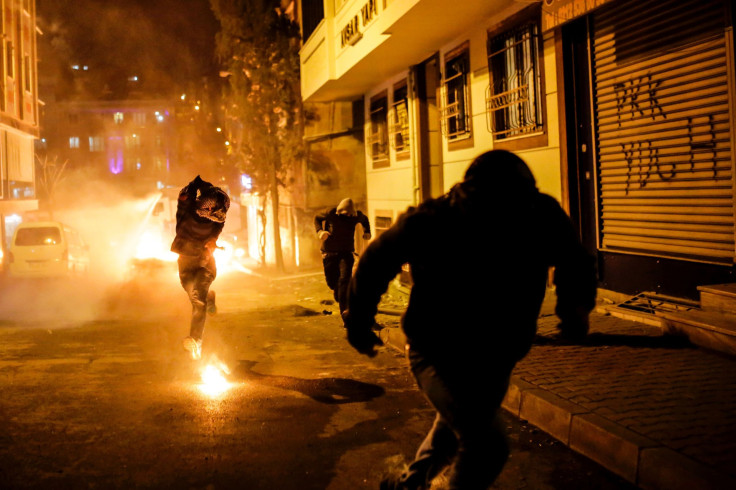Tensions In Turkey: 2 Wounded In Istanbul As Police Crack Down On Pro-Kurdish Protesters

Pro-Kurdish protesters clashed with Turkish police in Istanbul on Sunday in the anti-government stronghold of Gazi, leaving at least two wounded, Agence France-Presse reported.
The police, in armored cars, fired canisters of tear gas. According to unofficial reports, they also fired live ammunition. The demonstrators were protesting the latest round of Turkish military operations in southeast Turkey, a region that is predominantly Kurdish.
Turkish Prime Minister Ahmet Davutoğlu said in January that those operations, which began in December and targeted militants of the Kurdistan Workers Party, or PKK, were nearly complete. But analysts have suggested that neither side has much incentive to back down: The longer the Kurds fight, the more recruits the PKK can attract, while for political reasons, the ruling Justice and Development Party of President Recep Tayyip Erdoğan has reason to display -- and use -- force against the Kurds.
The Turkish town of Cizre, after two months of a state "security operation" against PKK. https://t.co/RIzkHgpqkJ pic.twitter.com/Foz50W3pXz
— DavidKenner (@DavidKenner) February 13, 2016
The army has said it killed more than 500 such militants, while the Kurds said more than 100 civilians had been killed. The International Crisis Group, a think tank, has estimated that at least 230 Turkish security officers have been killed, along with as many as 240 civilians and hundreds of PKK fighters.
The PKK, which seeks autonomy for Kurds in Turkey, and the conflict between its militants and Turkey's government has been ongoing since 1984. A two-year ceasefire ended in July with PKK militants attacking Turkish police and soldiers, accusing the state of quietly supporting the Islamic State group in part by turning a blind eye to its presence in the country.
In response, the Turkish government cracked down on Kurdish towns and cities in the country's southeast. Many say that those hurt most by the fighting have been civilians, as the fighting takes its toll on the local economy and infrastructure.
The Turkish military has also cracked down on Kurdish forces in northern Syria known by the acronym YPG, which is fighting against the Islamic State group there. It began shelling Kurdish militia there Saturday, and the Syrian government called Sunday on the United Nations Security Council to take action, saying, "Turkish artillery shelling of Syrian territory constitutes direct support to the armed terrorist organizations."
© Copyright IBTimes 2024. All rights reserved.












